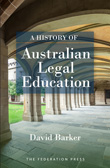A less than “radical change” to Australia’s court structure

Given the Attorney-General’s openness to “radical change” in the structure of Australian courts, one small but significant reform would be to revive the idea of having judges jointly appointed to both the Federal and the relevant Supreme Court. This arises out of the pending unsatisfactory issue of benches comprising three Full Federal Court judges and […]
Insolvency practitioner independence – a ‘fair-minded’ or ‘uncharitably-minded’ assessment

The most recent decision on insolvency practitioner independence confirms an ongoing trend of treating the fair-minded observer, whose view is determinative, of being more knowledgeable than in the past. The 2014 appeal decision in Walton Constructions; ASIC v Franklin[1] concerned issues of independence of administrators arising from the source of their appointment. The Full Federal […]
ASIC’s 2016-17 Report – insolvency practitioners

ASIC’s 2016-2017 annual report has been released. The following comments focus on the report’s comments on ASIC’s oversight of liquidators at pp 66-68 of the report, including *ASIC’s winding up of 6 abandoned companies, helping 4 employees owed $240k in unpaid entitlements; **ASIC’s funding of 1 liquidator to recover assets and ban 34 directors; ***ASIC […]
Shifting the Dial – not far enough for insolvency and phoenixing

The Productivity Commission’s report – Shifting the Dial – is a valiant attempt to move us out of the comfort zones of many assumptions about what can and can’t be done in commerce and society generally. Its recommendation [2.5] on how pharmacy services might be revolutionised is a dramatic example. Insolvency But in my focus […]
Our new insolvency law – how on earth did it all happen?

Australia’s new insolvency laws – introduced by the Insolvency Law Reform Act 2016 – are in place and the task is to understand and apply them. They are not legally difficult. But they have been described in dramatic terms by eminent commentators as the worst insolvency reforms in 30 years; some may say the worst […]
A History of Australian Legal Education, by David Barker

I was pleased to have attended the recent book launch of A History of Australian Legal Education written by my colleague Professor David Barker. The book examines the history and development of legal education in Australia by tracing the establishment of university law schools and other forms of legal education in the States and Territories […]
Australian Academy of Law

I am honoured to have been elected a director of the Australian Academy of Law at its AGM on 25 September 2017, having been a Fellow of the Academy since 2014. My colleague Dr Nuncio D’Angelo was also elected as the other new board member. The work of the Academy is evident in the range […]
How to be ethical in the practice of the law: can it be taught?
This open debate, organised by the Australian Academy of Law, is the final in a series of three ethics-themed debates held in Sydney this year. Previous debates have attracted a wide audience of around 200 people. It is being held from 5:30–7pm on Monday 20 November 2017, at the Federal Court of Australia in Sydney. […]
Bankruptcy – for a whole year?!

“The degree of civilization in a society can be judged by entering its prisons.”[1] I would not go so far as to say that some reactions to the government’s proposed reduction in the 3 year period of penal servitude for bankruptcy to 1 year is an indicator of the degree of Australian civilisation. But it does support a view […]
Why does the Federal Circuit Court not have corporate insolvency jurisdiction?
This is not a plug for the Federal Circuit Court of Australia, which sits below the Federal Court, but it asks why it has not been given corporate insolvency jurisdiction under the Corporations Act. The unsatisfactory answer to that is suggested at the end of this article. Apart from its extensive family law and child […]
Where’s an economist when you need one?

R3 in the UK has commented on a recent OECD Report, about which we gave some views when it came out, in July 2017. As R3 says, the OECD report has concluded that the UK’s insolvency and restructuring framework is the most effective at “preventing a build-up of productivity-sapping zombie companies”, those “struggling companies aged […]
Other constitutional restrictions on our politicians – treason, and bankruptcy

This commentary need not distract us from the important issue being heard by the High Court on Tuesday 10 October 2017, as to the eligibility of certain members of parliament to remain in office. But it is interesting to look at the other restrictions under our Constitution – treason, understandably, but also bankruptcy. The impending […]
Codes of conduct
Codes of conduct need to remain in step with on-going changes in the commercial and business worlds in which they operate. Otherwise they lose their relevance and purpose. That could then lead to a point where compliance with a Code is found to be contrary to the law, for which sanction may be meted. In […]

